Workers in Xishuangbanna Nature Reserve: once faced a dystocia maternal elephant 10 meters away
Although the future migration direction and return time of the "North Drift" wild elephant group is still unknown, Wang Bin believes that this group of wild elephants will return here one day. He has been engaged in wildlife protection in Xishuangbanna for 17 years. He has seen these gentle and active "short-nosed families" a few years ago. Over the years, what happened in this rainforest where the elephants ran away? Maybe few people know it better than him.
Phoenix.com's travel column "Great America" will successively launch the "Where are the magical animals" series, focusing on special destinations such as national parks and protected areas. Through the perspectives of museum experts, wildlife experts, popular science experts, and wildlife photographers, Take you to understand the lives of those "magic animals".
Photojournalist|Wu Hao Editor | Pu Xiao Planning |Xu Yue
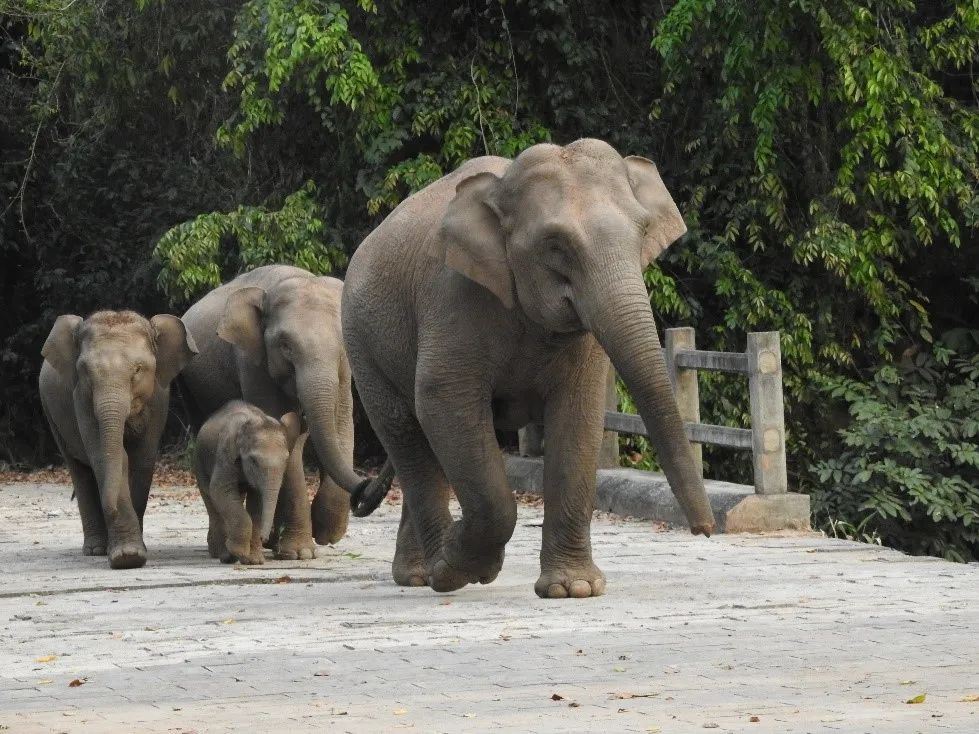
"When feeding the food on the spot, we are mainly responsible for directing and cooperating with the local forestry and grass department. The truck loaded with food is driven onto the road where the elephants are traveling, and the food is poured on the road when the elephants approach." In order to stop the elephants. As they entered the city, Wang Bin and his colleagues arranged several trucks every day to put nearly two tons of food in front of the elephants. These are the green corn, pineapples and bananas that elephants love to eat.
But in the beginning, the wild elephants "don't appreciate" and seldom take the initiative to eat. Wang Bin and his colleagues did not become discouraged, and kept putting in, “Maybe the elephant felt our good intentions, and a few days later started eating food to the northwest and southwest, away from the city.” Seeing “food offensive” "Cooperating with other blocking methods, Wang Bin's hanging heart was finally let go.
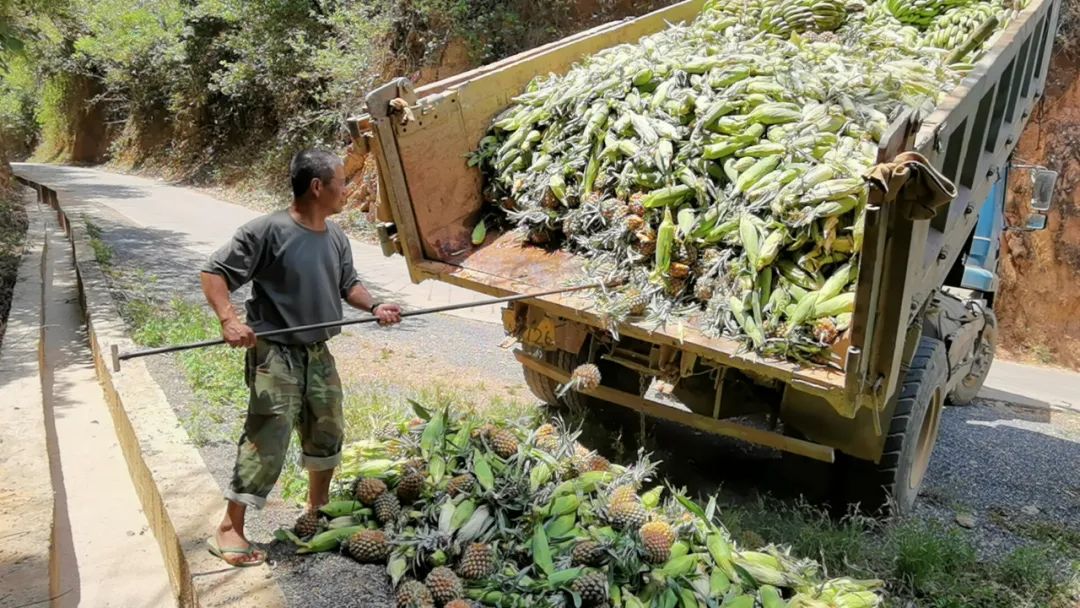
Pineapple for the elephant
On April 16th, the Yexiang family from Xishuangbanna headed north, approaching the Yuxi area near Kunming for the first time. This is the first time that the footprints of Asian elephants have appeared outside Xishuangbanna, Lincang and Pu'er. The "North Drift" feat of 16 Asian elephants has affected the hearts of netizens across the country.
In fact, Wang Bin and this "net celebrity" wild elephant family are already "old acquaintances." The wild elephants in the north drifted to live in Mengyang before, and Wang Bin is the deputy director of the Mengyang Management and Conservation Office of Xishuangbanna National Nature Reserve. He has been engaged in wildlife protection for nearly 17 years.
On May 27th, as a member of the expert group of Xishuangbanna National Nature Reserve, as a member of the Xishuangbanna National Nature Reserve expert group, due to his familiarity with the living habits of the Northern Drifting Elephant Group, he was invited to Yuxi by the Yunnan Provincial Forestry and Grass Bureau to assist the local government in carrying out the auxiliary work of wild elephant monitoring, and always follow the wild elephants. The whereabouts of the elephant. Wang Bin felt the people's enthusiasm for the wild elephant family along the way. Not only local villagers, but also many tourists from other provinces came from afar.
After 19 days of intense monitoring work, Wang Bin and his colleagues successfully completed the work arranged by the headquarters. The expert group of Banna Reserve left one person, and all the others returned to Banna.
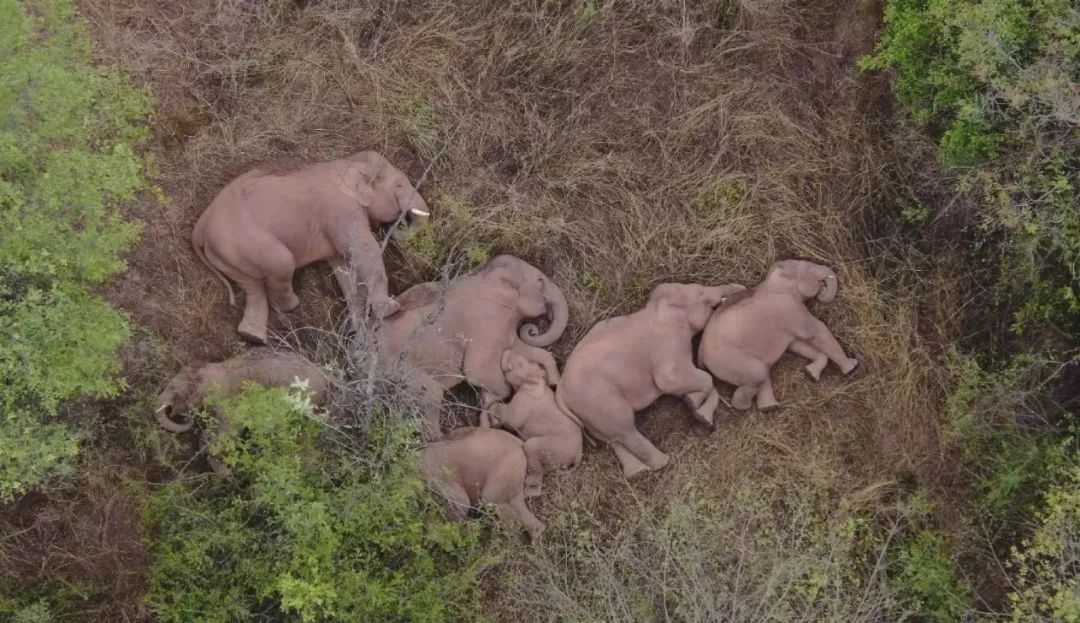
The sleeping "short-nosed family"
" This group of wild elephants that ran away is called the short-nosed family. It consists of 16 elephants. Because the nose is shorter than other elephants, it was named. They have been living in the Xishuangbanna National Nature Reserve Meng before . In the Yangpian area, my colleagues and I often saw them at the Wild Elephant Valley monitoring point. The biggest feature of this elephant herd is that it is active, gentle, and will not actively hurt people. The baby elephants in the elephant herd are very naughty and cute. Last March They have already started migrating. At first, the elephant herd only went to the Pu'er area for activities. In April this year, it began to go north, passing through Shiping County and arriving at Yuxi now.” Talking about this wild elephant family, Wang Bin's face was exposed. Excited expression.
They are the masters of this rainforest
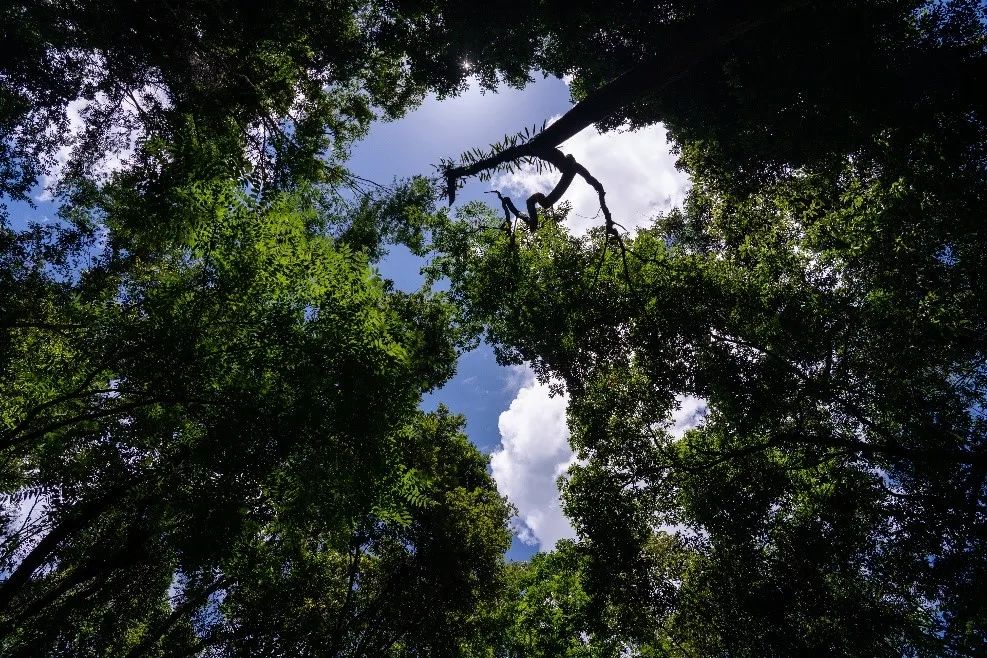
Mengyangzi Reserve, Xishuangbanna National Nature Reserve, Yunnan
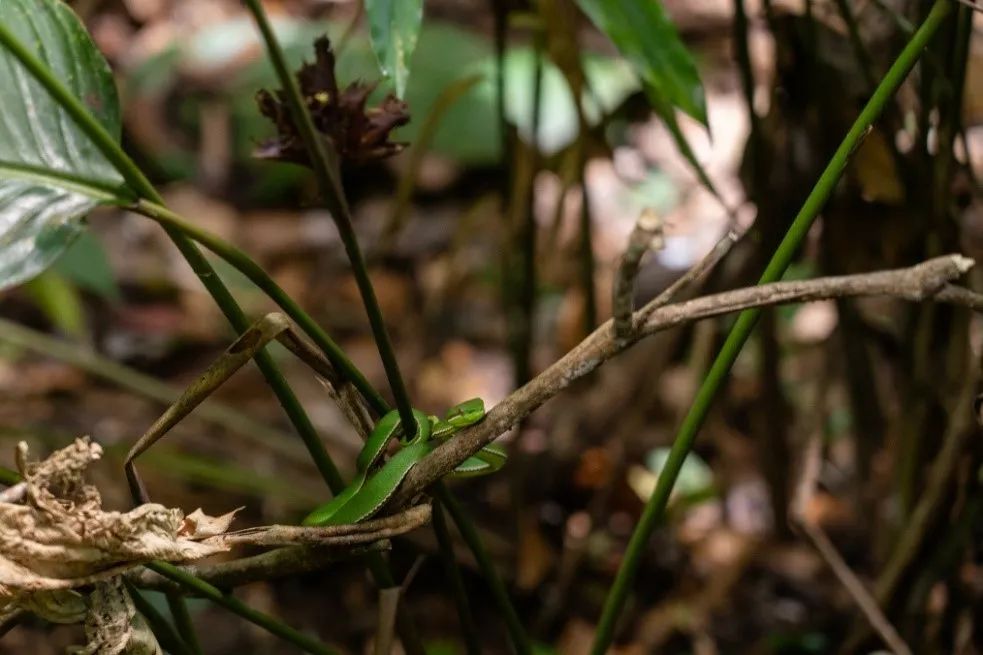
Wild bamboo leaf green snake in the primitive rain forest
The hometown of the short nose family is the Xishuangbanna National Nature Reserve in Yunnan, located in the southwestern border of the motherland. It is composed of five sub-protections in Mengyang, Menglun, Mengla, Shangyong, and Manduan, with a total area of about 242,500 hectares, accounting for the entire prefecture. 12.68% is currently the largest tropical virgin forest area in China. The biological resources here are extremely rich, and it is also the area where the population and activities of wild Asian elephants are most concentrated. Due to the development of various ecological protection work, wild Asian elephant populations have been properly protected. This northern floating elephant group comes from the Mengyangzi Reserve. Mengyang is the largest sub-protection area, covering an area of about 100,000 hectares.
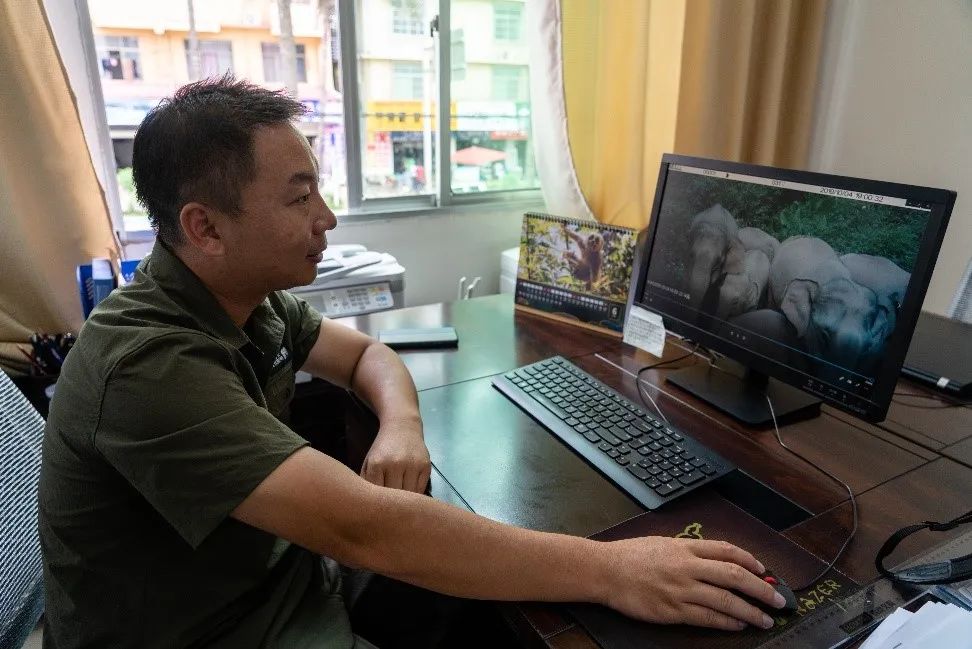
Wang Bin is in the office of Mengyang Management and Nursing Institute
Wang Bin, 41, wearing a dark green uniform, sits in the office of the Mengyang Management and Conservation Center of the National Nature Reserve in Mengyang Town, searching for the latest news on the northward migration of wild Asian elephants on his computer.
"The first time I met Asian elephants was still in high school. I went to the Wild Elephant Valley in Xishuangbanna that day. I saw this huge wild animal for the first time. Its steps are slow and elegant, and its movements are full of power. The high-pitched roar. I was fascinated by it at that time!" Zhaotong native Wang Bin recalled, Xishuangbanna's green rainforest, humid and mild climate and primitive ecological environment planted a seed in his heart. He secretly made up his mind that he would return here one day. Therefore, Wang Bin chose to major in animal protection when he was in university. After graduation, he was assigned to Xishuangbanna Nature Reserve as he wished.
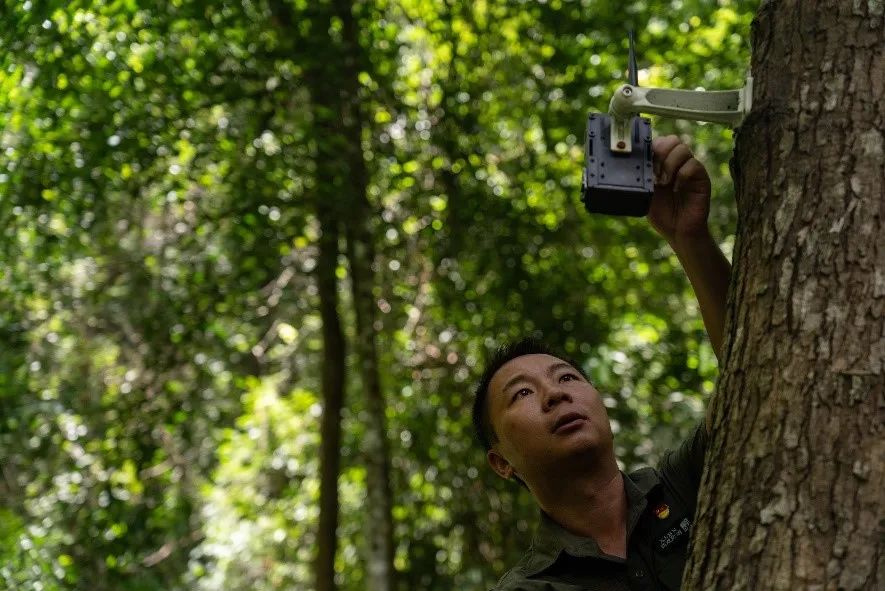
Wang Bin and his colleagues are repairing an infrared camera set on a tree in the forest
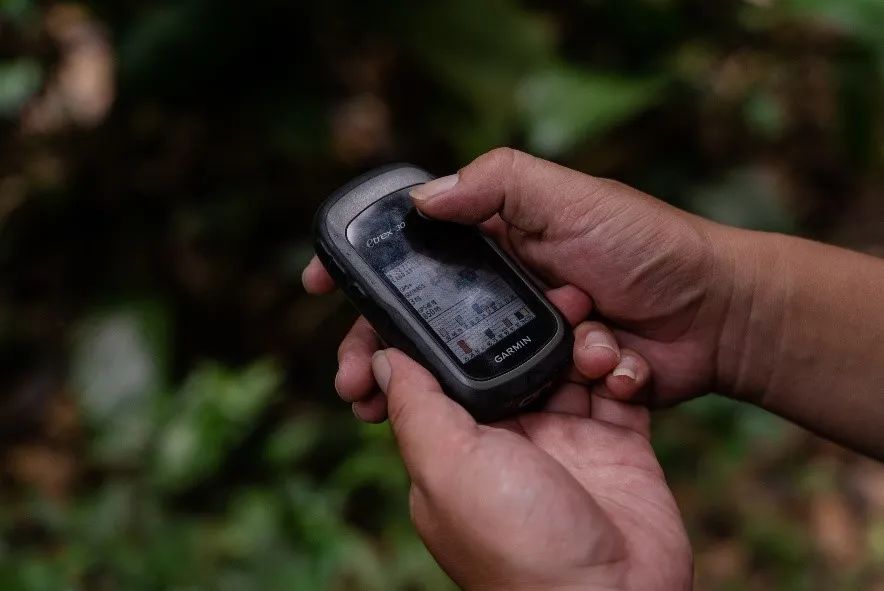
Satellite positioning equipment
Wang Bin entered the Xishuangbanna National Nature Reserve Management Bureau in 2004, and his daily field patrol and monitoring work is his favorite part. He has monitored the activities of wild elephants in the wild countless times and left many unforgettable memories. Most areas of the reserve are primitive jungles. There are many uncertain factors. Wang Bin and his colleagues sometimes need to bring dry food and tents into the jungle for several days. There are many dangers lurking in the jungle. In addition to wild elephants, there are black bears, wild boars, snakes, and big bumblebees.
“Like leeches and mosquitoes are common to us. A colleague was once attacked by a black bear while patrolling in the wild, and a large piece of meat was pulled out of the claws of the black bear on his buttocks. Fortunately, there were other monitors and With the presence of the rangers, this colleague can only go down the mountain and get treatment with their help." Wang Bin recalled the ups and downs of the patrol process, showing a little melancholy expression.
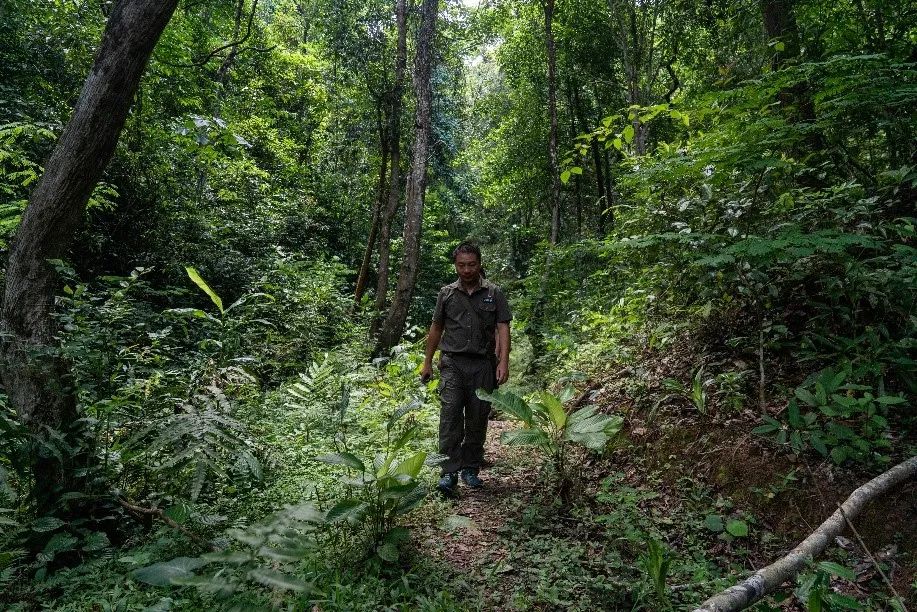
Wang Bin walking in the jungle
Wang Bin's first close encounter with wild Asian elephants was in 2005 when he was still a monitor in the Shangyongzi Reserve. During a daily patrol, Wang Bin and six other monitors entered the dense woods. When they hurried to the riverside, a scream of wild elephants suddenly came from the nearby bushes. Wang Bin panicked. He looked back subconsciously and saw that the leader of the Hani tribe had already run to the middle of the river. Only then did he slow down and hurried towards the other side of the river.
"Later we learned that it was a call from a female elephant who had just experienced a dystocia and lost her baby. That call was full of anger and sadness, and it might be only ten meters away from us. The feeling of fear at the time was impossible. Described, I just remember that it was like an earthquake. I didn’t have time to think about it. I ran out instinctively. I dared to stop when I reached the other side of the river. My heart was beating violently.” Wang Bin and his colleagues returned to the place where the incident occurred a week later. The remains of the decomposed baby elephant. This experience gave Wang Bin a deeper understanding of wild Asian elephants.
He believes that wild Asian elephants and humans have similar emotions and will feel sad because of the loss of their loved ones. They are the first masters of this rainforest. He still remembers an old forest ranger with more than 30 years of experience in forest protection who told him that people must always maintain awe of nature and wild animals.
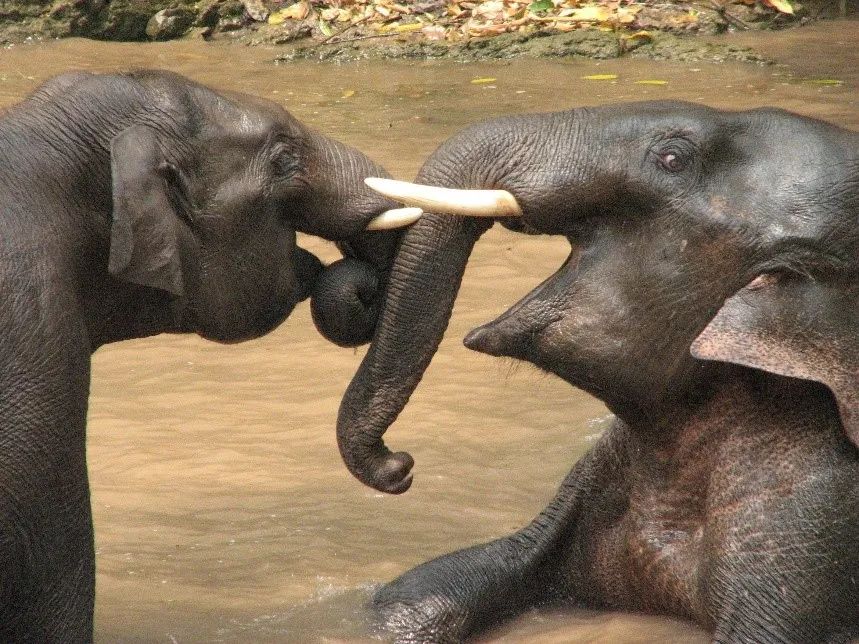
Elephants in the Mengyangzi Sanctuary
In subsequent work, Wang Bin and his colleagues have repeatedly monitored the activities of wild Asian elephants in the wild. They carefully recorded the time and place of each discovery of wild elephant activities, took pictures of the elephant herd, and also provided assistance for the research of relevant scientific research institutions. "Elephants often take their baby elephants to forage and play in the woods. When they are full, they will bathe in the river and play with each other. They are just as cute as children." Wang Bin was very pleasantly surprised at the event. He felt extremely warm and moved when he saw the little wild elephants lying in his mother's arms during lunch break.
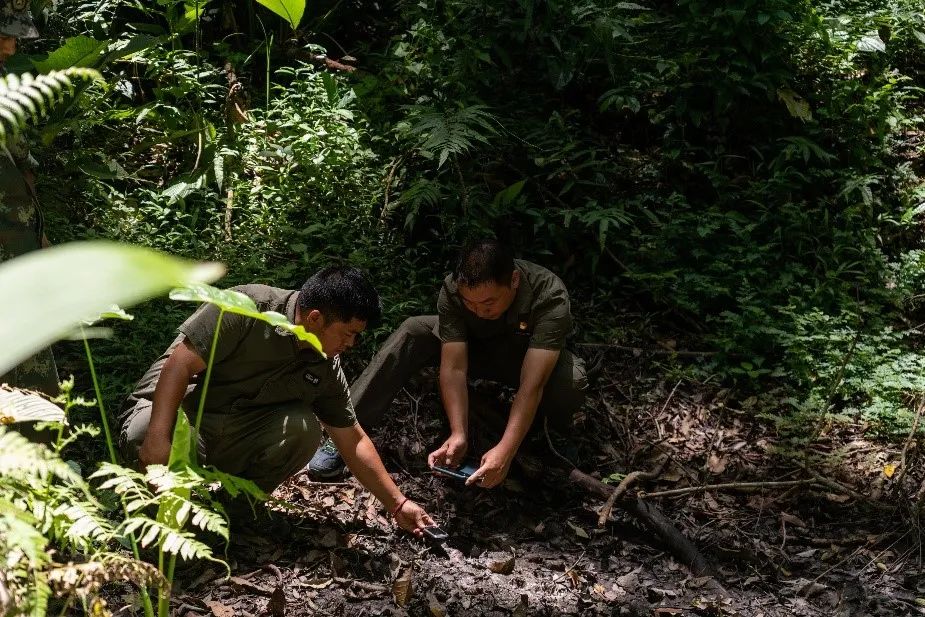
Wang Bin and his colleagues conducted monitoring records in the "nitrate pond"
In Wang Bin's impression, elephants are magical creatures, full of human touch, full of spirituality, not only have a strong memory, but also express gratitude to the humans who have helped them. Once Wang Bin and his colleagues found a wild elephant trapped in a water storage pit in the wild. The elephant accidentally fell into the pond dug by the villagers while climbing the mountain. The staff hurriedly sent an excavator to flatten the edge of the pond and finally rescued the wild elephant. After being rescued from the puddle, the wild elephant did not immediately run away, but turned back and put the big shovel of the excavator on top of it, and seemed to express its gratitude to them in its way.
Another wild elephant rescue also impressed Wang Bin. In 2007, during a fight between two male elephants in Mengla County on the China-Laos border, a wild elephant named "Pingping" was pricked and infected by the other's butt, and his life was hanging by a thread.
A team of 51 people composed of public security police, wild Asian elephant experts and professional medical personnel arrived at the scene. In order to transport "Pingping" to the rescue center in Yexianggu, the rescue team had to anaesthetize it. In order to prevent the elephant from pressing the heart because of its deep sleep, Wang Bin and his colleagues need to wake up the elephant at regular intervals. It was the first time that Wang Bin came into contact with a wild elephant so close. When he touched the "flat" rough skin with his hand, he felt its slow and firm heartbeat. Looking at its large eyes that occasionally opened, Wang Bin was deeply moved. Strengthened the determination to engage in wild elephant protection. After that, doctors at the rescue center performed a major operation on Pingping. Pingping quickly recovered his health, which made Wang Bin very pleased.
How the villagers and elephants get along
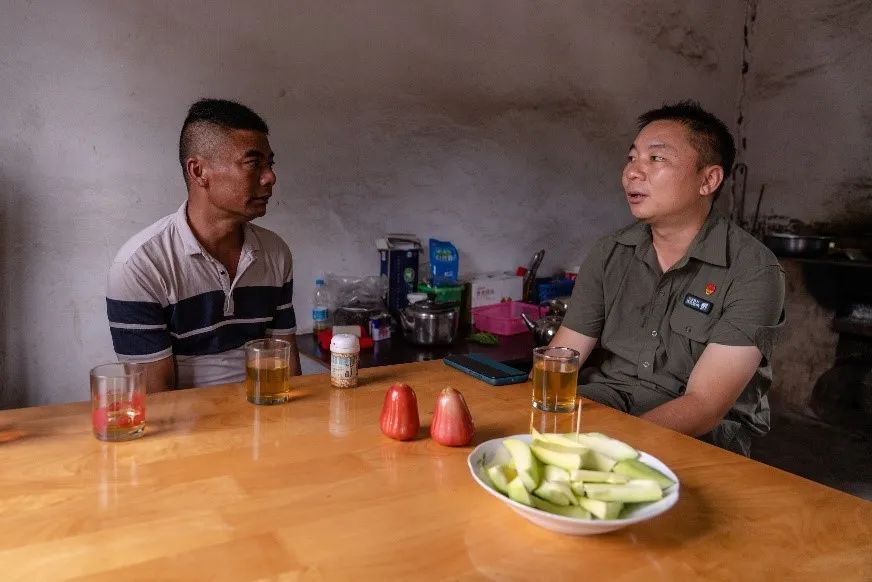
Wang Bin visited the local villagers in the No. 6 team in the Mengyang Nature Reserve
In addition to daily basic patrols, it is another important duty of Wang Bin to conduct wildlife protection publicity in villages in the reserve. Every year, Wang Bin and his colleagues go to every village within the protected area to conduct safety education, distribute safety manuals to the villagers, and cooperate with environmental protection organizations to carry out safety popularization courses in local schools to enhance the wildlife protection of local villagers Awareness and awareness of prevention.
"Because there are many villages in the reserve, the activities of wild elephants will affect the daily life of the villagers, and sometimes they will cause unexpected incidents of human-elephant conflicts and cause economic losses. The villagers who have lived here for a long time love wild elephants. I am also afraid. Wild elephants often come to the farms of villagers’ homes for food, and migrant workers who are not familiar with the habits of wild elephants will come to see the elephants, which has caused many accidental injuries.”
Running elephants can reach a speed of nearly 40 kilometers per hour, while humans are only 25 kilometers, and there is almost no chance of winning a race with an elephant. Wang Bin once received a call for help from the masses. When he arrived, he found that the elephant was playing with an obscure motorcycle like a toy. The owner of the car was shivering while hiding in a highway culvert. He rescued people into the car and saw the angry elephant rushing towards the front of their car. Unable to move forward, he could only back up on the trail, and he was panicked several times before escaping smoothly. Recalling that moment of shock, Wang Bin's palms would still have some cold sweat.
Wang Bin also found that elephants are very clever. He once saw elephants climbing over a 2.5-meter-high railing. As a result, they had to change the horizontal railing to vertical. He found that with such an opponent, one cannot drive, two cannot provoke, and three must absolutely avoid all frontal conflicts. The alarm sounds. As long as the elephant is around the village, the infrared alarm system will be activated in time. The village’s electronic warning sign will be displayed immediately, and the village broadcast will immediately remind everyone not to go out. They have also educated elephants that elephants that often cause troubles will be anesthetized and sent to the elephant rescue center, which will undoubtedly have a warning effect on smart elephants.
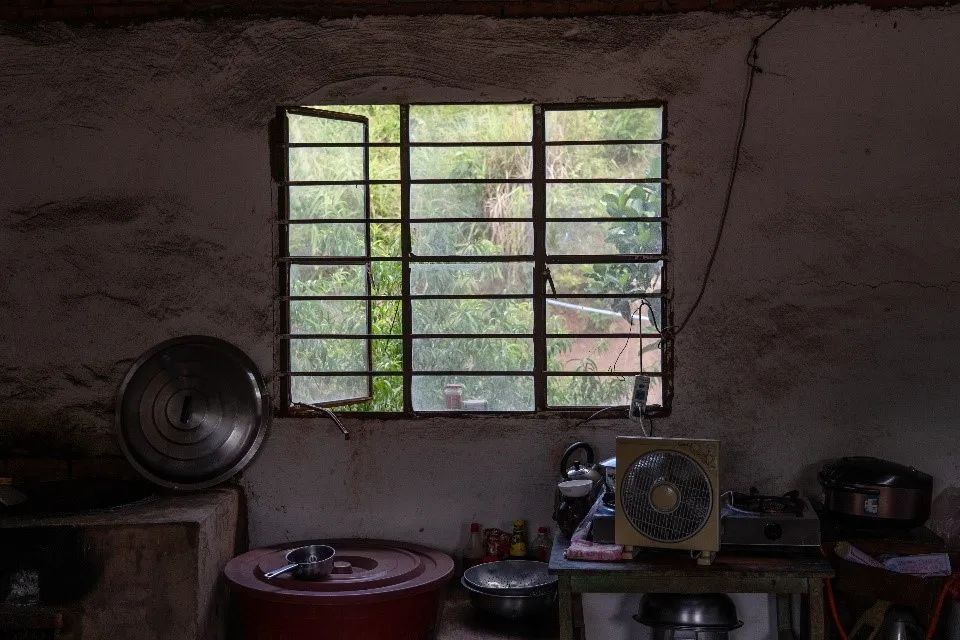
In the homes of local residents
In order to reduce the occurrence of human-elephant conflicts, Wang Bin and his colleagues also carried out habitat transformation and restoration work. “We have transformed some of the farmland in the villages that we had previously moved into elephant food sources, planting corn, bamboo forests, plantains and other crops that elephants love to eat. At present, we have obtained information about Ping Food Source Base and Lianhua Pond Food Source Base. It has achieved a certain effect. Elephants will come to the food base from time to time to find food, reducing the intrusion to the villagers’ living areas."
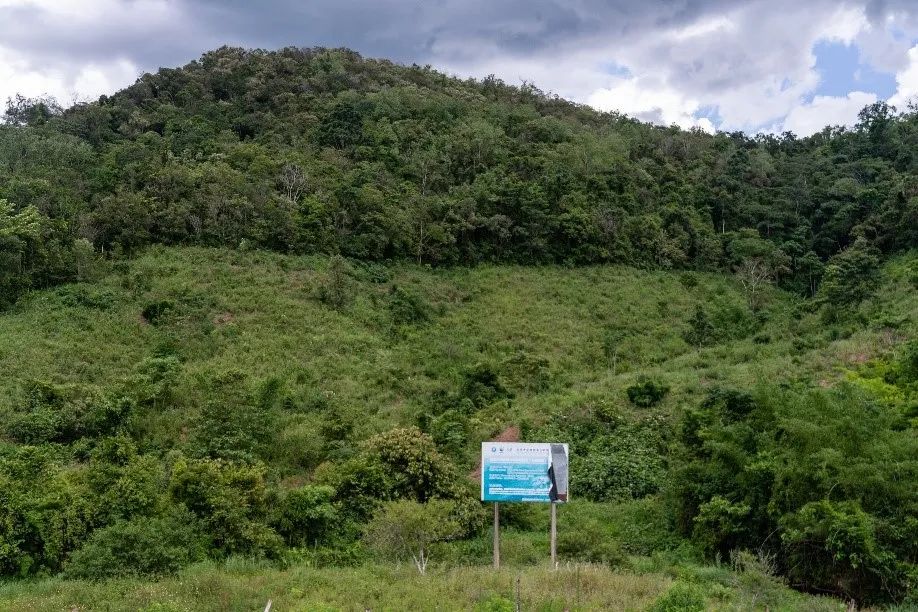
Guanping Food Source
From 170 to 300
As the flagship species in the tropical rain forest, the wild Asian elephant has irreplaceable significance for the natural environment and human beings. Elephants are known as "engineers in the rain forest." The elephant road it walked during its migration opened up a life channel for other animals and plants in the forest, and its dung brought fertilizer to the plants, and the huge footprints it stepped on became a paradise for insects and plankton.
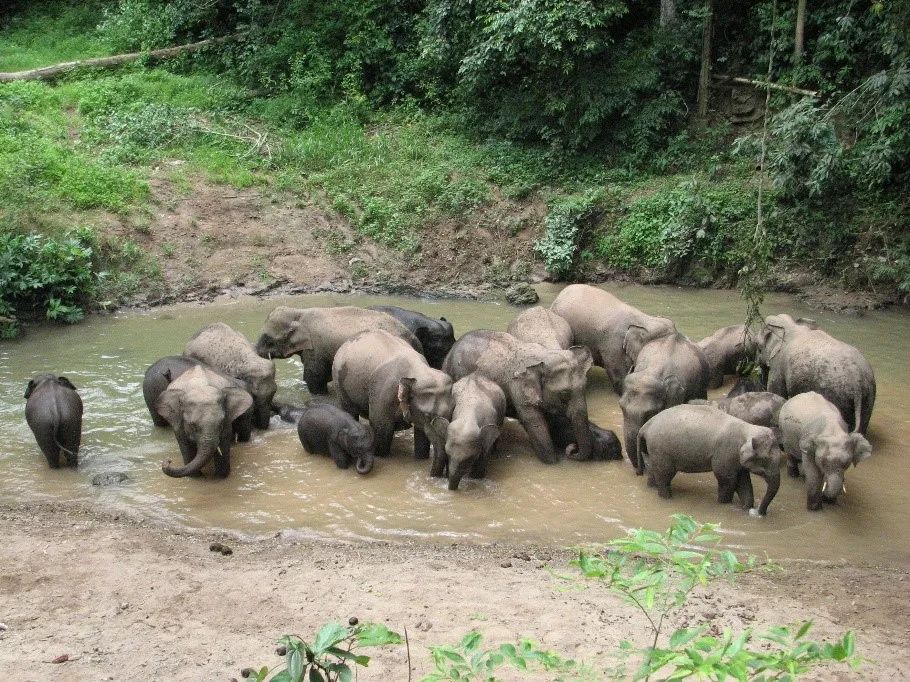
Wild Elephant Group in Mengyangzi Reserve
With the efforts of Wang Bin and his colleagues in the reserve, incidents of human-elephant conflicts in the reserve have been significantly reduced. With the strengthening of the villagers’ awareness of animal protection, poaching no longer occurs in the reserve, and the population of wild Asian elephants is safe. Has been fully guaranteed. In addition, elephants have no natural enemies, which makes the population of wild Asian elephants continue to increase. According to Wang Bin’s observations and statistics, there are currently about 70-90 wild Asian elephants active in the Mengyangzi Reserve, and the number of wild Asian elephants in the country has increased from more than 170 in the early 1980s to more than 300 today. .
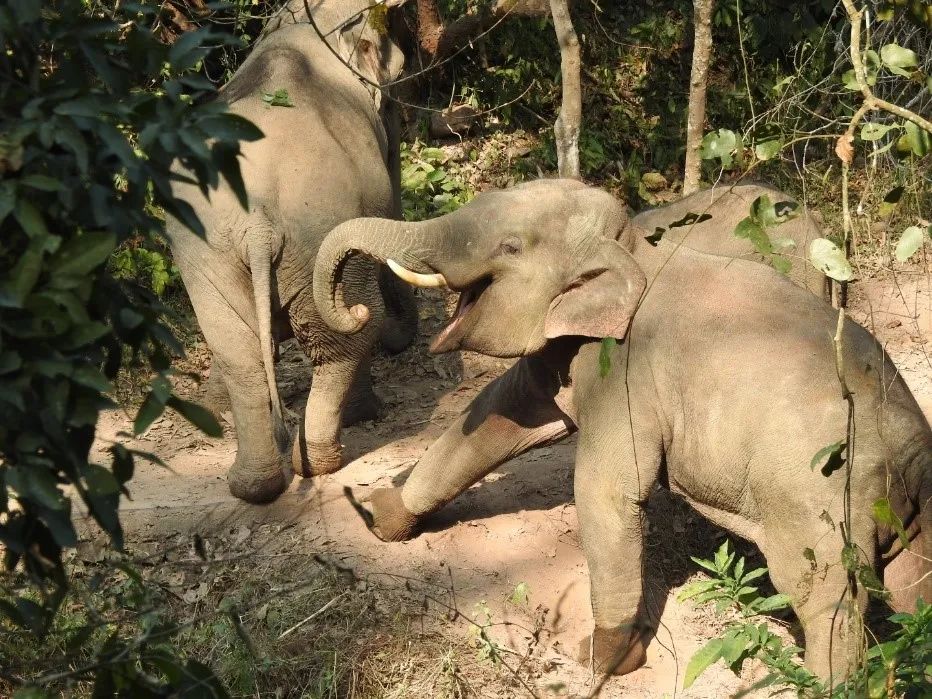
Wild Elephants in the Primitive Rainforest
Wang Bin speculated that Asian elephants left their familiar living areas and came to the areas where humans live for food, which may be related to the changes in the tropical rainforest ecological environment in Xishuangbanna over the years. As forest protection continues to increase, the forest coverage rate in the reserve has increased from 88% in the 1980s to more than 95% now, resulting in the simplification of the original reasonable ecosystem of tall trees, shrubs, and grasslands. It is almost occupied by tall trees, and the herbaceous plants that are easy to eat under the forest are reduced. With the increase in the population of Asian elephants, the demand for food by elephants is also increasing. They can only go out of the dense forest and come to the farmland to find alternative food.
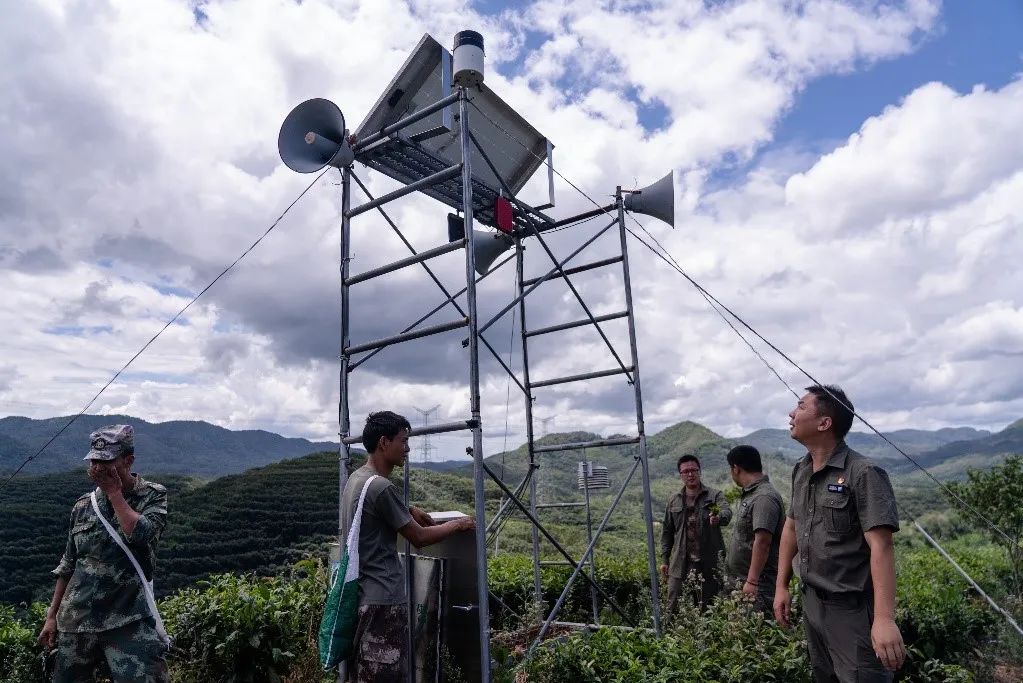
The loudspeaker on Chashan will alert the surrounding villagers once it detects the presence of wild elephants
"My feelings for Asian elephants are particularly complicated. It is our duty to protect them. We are very pleased to see wild animals. If we find a dead elephant, even if it is an old elephant, we are very special. It's uncomfortable. But if an elephant hurts or dies, wouldn't it be uncomfortable for us?" Wang Bin said that a few years ago, one of his colleagues was killed by an elephant. There are people on one side and elephants on the other. All workers in the Xishuangbanna Nature Reserve suffer from the protracted seesaw entanglement in this land for living space. This dilemma has caused all the workers in the Xishuangbanna Nature Reserve to suffer. " Humans need to survive, and elephants also need to survive. " Wang Bin said.
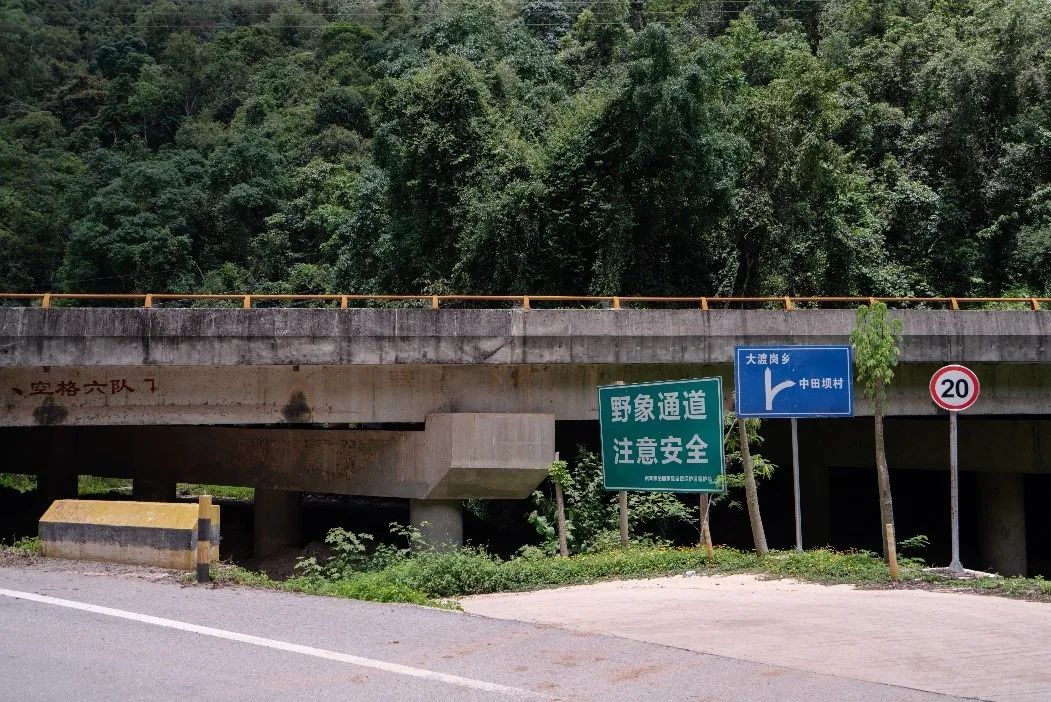
Next to the village road, a sign marked the location of the elephant passage
In the future, Wang Bin hopes that the country will continue to pay attention to and support the protection of wild Asian elephants, establish a national park centered on the protection of Asian elephants , mobilize all resources that can be deployed in the reserve, and restore the habitats of Asian elephants. If the work is done well, a comprehensive protection area will be formed, so that Asian elephants can get sufficient food and good living space. At the same time, the development of sightseeing tourism with the theme of wild animal science will enable more people to participate in environmental protection and public welfare, and at the same time increase the tourism income of local villagers and promote the harmonious development of ecology.
He is very optimistic about the future of the Kitakami Elephant Family, even if the future migration direction and return time of the Kitakami Elephant Group are unknown. Wang Bin believes that the elephants drifting north will return here one day.
Q&A
Q: Phoenix Travel
A: Bao Mingwei, Elephant Doctor, Asian Elephant Provenance Breeding and Rescue Center, Yunnan, China
Q: If the elephants migrating northward are fed all the way, will they get diabetes? Will there be dependence?
A: At present, the foraging behavior of these migrating wild elephants is considered normal. They still instinctively use the wild plants they are looking for as their main food source, and the artificially put food only accounts for a small part, just to guide them Going to the mountains and forests, it usually contains a lot of sugar in a lot of food, so it will not get sick from feeding.
Q: Will the elephants migrating northward be homesick like people?
A: Because elephants have a good memory, they will definitely miss home after they leave the habitat for a long time, because they are still familiar with the environment of the tropical rain forest, and there are some familiar elephant herds in their hometown, not all elephants. After migrating out, they will miss their companions and hometown for a long time. This is similar to our human emotions.
Q: The naive look of elephants when they take a nap in the wild has aroused the love of many people. Do elephants take a nap every day? How long do they need to sleep a day?
A: Normal elephants may only sleep a few hours a day. Because elephants are large in size, most of their time will still be spent on foraging. Once there are baby elephants in the herd, the rest time of the elephants will be extended a lot, because the little guys like to be lazy, especially at noon, they will sleep more. Elephants are very large, and they usually lie down on one side after sleeping to prevent pressure on the heart.
Q: How will the elephants migrating northward to a strange place adapt to the new environment? When will they go home?
A: For the target group, this long northward migration is actually a big test. Fortunately, the temperature in Yunnan is generally not cold, so these wild elephants are still more accustomed to the new environment, except that the surrounding environment and terrain are relatively unfamiliar. Other daily foraging will not be affected too much. As long as there are forests to hide, elephants can continue to migrate. They may not go back until the temperature gets colder in the second half of the year. It is hard to say now, and more needs to be done. Monitoring and observation, after all, the climate and rainforest environment in Xishuangbanna are still the most suitable for the long-term life of the elephants. We also hope that the elephants can return to Xishuangbanna in a healthy and healthy way.
Q: How do elephants express when they are sad or angry?
A: When an elephant is angry, it will also yell like a human, make a high-audio sound, and use its nose to break the branches of nearby trees. The ears are high. If they encounter other people or animals, they will Make an attacking posture, scratch the soil around your feet with your big feet, pretend to sprint, and pace back and forth.
Q: How do elephants celebrate when they are happy?
A: When they are happy, the sound they make will be gentle, full of magnetism and charisma, their ears will naturally swing back and forth like a fan, their body movements will be slow and steady, and they will interact with the body of a nearby elephant with their nose.
Q: Who has the final say in an elephant herd?
A: Because elephants are a matrilineal society, adult female elephants have the greatest say in an elephant herd. Just like our grandmother, mother or sister in a human family has the final say, an elephant herd usually walks in The last are the female elephants of this family, and the mother is a symbol of leadership and safety.
Q: Why do adult male elephants leave the group to live alone?
A: In the elephant family, since the mother has the final say, male elephants generally choose to leave the elephant herd as an adult, find other elephant herd families to interact with, and find partners to nurture the next generation. This can also prevent inbreeding. Promote gene exchange between populations.
Q: It is said that elephants are foodies. How much food can they eat in a day? What is your favorite food?
A: The food that an adult wild Asian elephant eats in a day accounts for about 8% of their body weight. An adult elephant of three tons eats about 240 kilograms of food a day. What elephants like to eat is gramineous plants, such as various grasses, corn, sugar cane, zongye reed, plantain and bamboo. We have counted that elephants eat more than 400 kinds of plants, and most elephants can eat them. There are more than 100 kinds of food.
Q: The elephant seems to be very powerful. Does it have anything to fear?
A: Elephants are the largest animals on land, so they basically have nothing to fear, and there are no natural enemies in the forest. Although there is a saying that elephants are afraid of bees, the baby elephants may be afraid of the sounds made by bees at first, but because of their high IQ, which is equivalent to a five or six-year-old child, they will not be afraid soon after they adapt.
Q: Will the little elephant act like a baby with its mother? How do they act like a baby?
A: Baby elephants are generally naughty and lively. They have many different behaviors when acting like a baby. For example, they often make cheerful calls, spray water on other elephants deliberately when playing in the water, and sometimes crawl on their mothers. Or hold mother’s legs, bury your head under mother’s body, play with your nose, etc.
Q: How many baby elephants will a female elephant give birth to in her lifetime?
A: A female elephant can live to about 60 years old in the wild. They can give birth to 5-6 baby elephants at most in their lifetime. The gestation period of elephants is 18-22 months, and the baby elephants just give birth to drink. At the age of 4, the average elephant will give birth to a baby elephant at an interval of 5 years.
Q: How is the memory of the elephant? Are there any interesting examples?
A: Elephants generally have excellent memory. They often remember the places they have been and the road they have traveled. Sometimes they also remember the rangers who helped them. Once, a wild elephant was injured because of a fight with other elephants. A passing ranger gave it medicine. Every time he saw this wild elephant, the wild elephant would slowly approach the ranger. , The distance is about 10 meters, showing a docile demeanor. They can also quickly understand human gestures and some languages. Sometimes when we examine the body of wild elephants, we ask them to lift their feet and open their mouths. They can quickly remember and understand.

COMMENTS